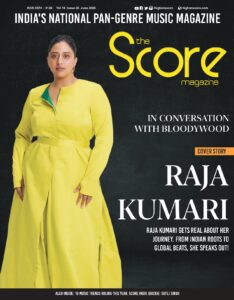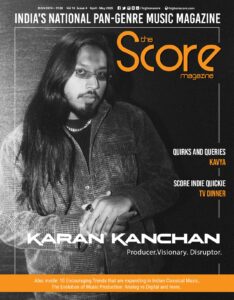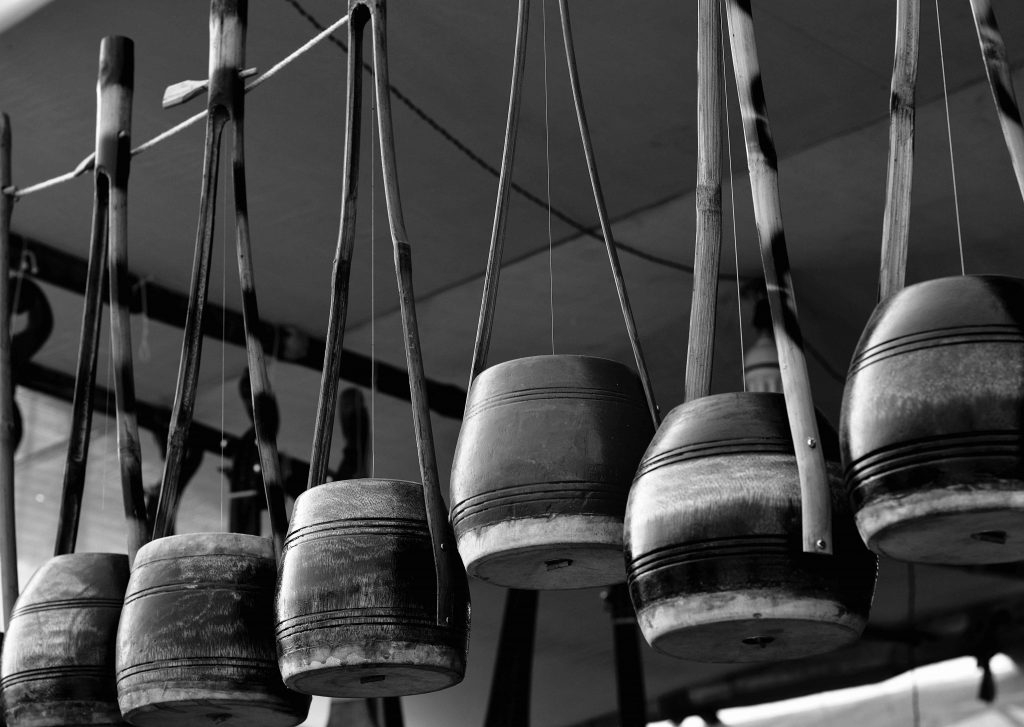The common trope of a foreigner from a distant land coming to India in search of enlightenment might be annoying, but this country’s depth of spiritual experimentation is possibly second to no other in the world. While the words ‘Advaita Vendanta’, ‘Sat-Chit-Ananda’ and ‘Nirvana’ might be fairly well-known in common parlance (thanks to their mostly superficial inclusion into pop culture), these ideas emerge from ideological and emotional doctrines that have been instrumental in giving India its reputation for philosophical profundity. While it is tempting to praise India’s heritage of holiness because it drew top itself icons like The Beatles and Alice Coltrane, the music crafted by India’s myriad mystical traditions offer an understanding of divinity beyond the human simplicities of discrimination.
It would be great folly to not delve into the treasures offered by those who make music in their search for Bliss – the kind that, once experienced, cannot be touched by the goings-on of material existence. If you haven’t sampled this world of unconditional love and endless liberation, view the following as a slight gesture of guidance towards it.
Parvathy Baul : One of those minstrels that you will see in the villages of Bengal who sings about letting go of the delusions of a world loaded with pointless definitions, Parvathy Baul’s voice snares your heart like a master hunter snares the restless doe. Hers is one of the few prominent presences in among the Bauls in which women are more frequency companions to the male singer rather than the practitioner herself). Lock yourself in a room, dim the light and find her on Youtube imploring “Paare loye jao” (Take me to the shore).
Lalon Fakir : The most prominent among those ascribing to the Baul tradition, Lalon was a man whose philosophy chose not to battle with questions of rebirth and the afterlife, but rather with divisions of community, castle, class and gender. His songs, which inspired the likes of Rabindranath Tagore, mock the reasons for disunity that human society seems to hold so dear. His beliefs are exemplified in words such as :
“Everyone asks, “What religion does Lalon belong to in this world?”
Lalon answers, “What does religion look like?”
I’ve never laid eyes upon it.
Some use Malas (Hindu rosaries),
others Tasbis (Muslim rosaries), and so people say
they belong to different religion.
But do you bear the sign of your religion
when you come (to this world) or when you leave (this world)?”
Meerabai : Instead of a performing musician, Meerabai composed songs in her solitude for the purpose of unifying with the lord of her heart, Manmohana himself. Her hymns to Lord Krishna convert the devotee-lord relationship into something akin to that of the yearning lover and cruel beloved. She composed bhajans and kirtans that, sung to this day, have become anthems for those that wish to escape the illusions of everyday conflict and find an everlasting resolution in surrendering to all that is truly Holy.
Surdas : The beauty of Surdas’ melody can almost be sensed through a mere reading of his words. Much like Meerabai, he offered his heart and mind in tribute to Murlimanohar through the composition of verses. His compositions extol the godly aspects and doings of Krishna, and in the plebeian words of the Braj Bhasha, he explored the celestial love of Radha-Krishna. He advocated for complete surrender and pure love for God manifested through the form of Krishna. It believed that he penned thousands of songs in his magnum opus ‘The Sur Sagar’ (Ocean of Melody) of which only about 8000 are extant.
Wadali Brothers : Two men who carry the passion and talent of four generations of Sufi musicians, Puranchand Wadali and Pyarelal Wadali possess voices that would convince you that God does speak through human devices. Just hear them intone the following words :
Tu mane ya na mane dildara
asan te tenu rab maniya
tu mane ya na mane dildara
asan te tenu rab maniya
{{das hor kera rab da dwara
das hor kera rab da dwara
asan te tenu rab maniya
tu mane ya na mane dildara
asan te tenu rab maniya
- Tu Maane Ya Na Maane
The Wadali Brothers draw their art out of a tradition that spans centuries, treating their music as an homage to all that is sacred in the world. They sing the words of various preachers, unconcerned by divisive categories such as religion. Striking in their abstinence from commercial ventures and elaborate performative setups, their presence is a reminder of the fact that despite what the charts might say, the sounds of the soil are still to be held to the heart.
Ravidas : A poet-sant whose devotional songs are included in the Guru Granth Sahib, Ravidas’ work deals with the theme of dismantling boundaries fabricated by humans in the pursuit of union with greater truths. For instance,
This experience is such,
that it defies all description.
I have met the Lord,
Who can cause me harm?
Hari in everything, everything in Hari –
For him who knows Hari and the sense of self,
no other testimony is needed:
the knower is absorbed.
- Ravidas, Translated by Winand Callewaert and Peter Friedlander
The object of his worship often seems to be an entity similar to that venerated in the tradition of Nirguna bhakti, depicting a certain organic nature to the ideas binding the mystic mythologies of India.
Ramananda : As central to the Bhakti tradition as Sant Kabir is to the heart of the Sufis, Ramananda is believed to have been born of a Brahmin family sometime in the 14th century. He became one of the pioneering figures of the Bhakti movement, and defied social norms by accepting disciples irrespective of caste, religion or gender (including Muslims). Traditional scholarship insists that his spiritual lineage passes through preachers of great merit such as Kabir, Ravidas and Bhagat Pipa (though this has been questioned later).
Ramananda’s philosophy, drawn from the teachings of south Indian Vedanta philosopher Ramanuja looks towards a synthesis of Advaita Vedanta and Vaishnava bhakti. His message, however, has never compromised on its accessibility, as exemplified when he sings :
“Wherever I go, I find only water and stones,
But Brahman is in everything.”
- Ramananda in Raag Basant,Adi Granth
Throughout his life, he championed a direct connection with God, untainted by false knowledge (like belief in external, material or physical differences) and self proclaimed middlemen (priests). He decried the utility of any penance if the inner self did not acknowledge itself as one with Hari.
Consider the above list a drop in an ocean, but as goes the saying ‘little drops of water the mighty ocean make’. The historical and contemporary figures listed offer a glimpse into the richness of sentiment that motivated some of the greatest cults of compassion in human history. The noticeable similarity – of the oneness of all existence and the futility of worldly distractions, is striking and is reflected in almost every ascetic heritage in the sub-continent. Be assured, if you venture down this path, you might find yourself a whole lot happier with a whole lot less.
This article was featured in our June 2017 issue: http://bit.ly/2ugSCob








